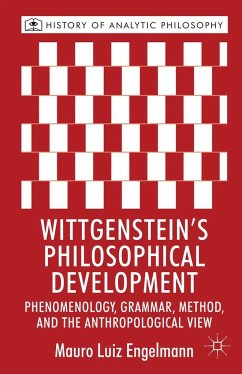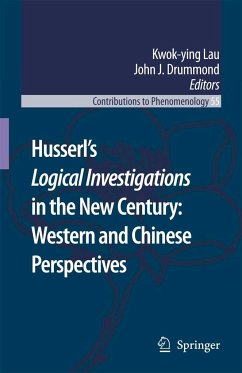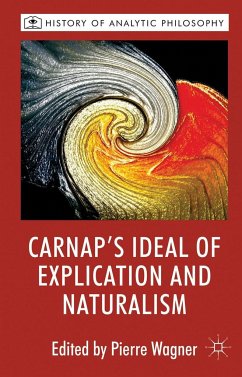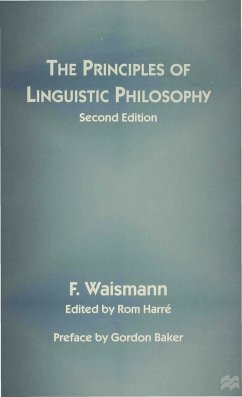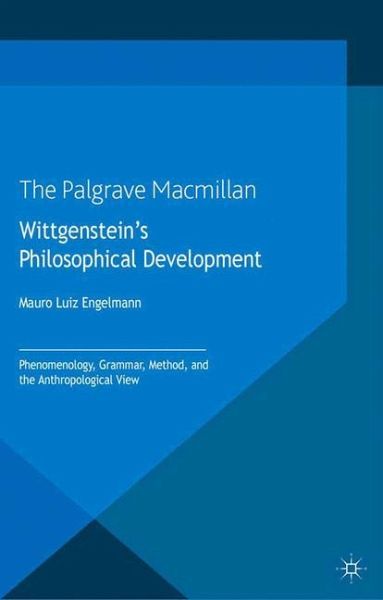
Wittgenstein's Philosophical Development
Phenomenology, Grammar, Method, and the Anthropological View
Versandkostenfrei!
Versandfertig in 6-10 Tagen
68,99 €
inkl. MwSt.
Weitere Ausgaben:

PAYBACK Punkte
34 °P sammeln!
The book explains why and how Wittgenstein adapted the Tractatus in phenomenological and grammatical terms to meet challenges of his 'middle period.' It also shows why and how he invents a new method and develops an anthropological perspective, which gradually frame his philosophy and give birth to the Philosophical Investigations .





